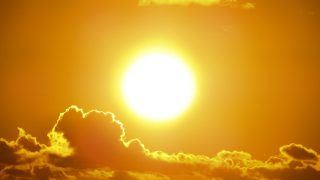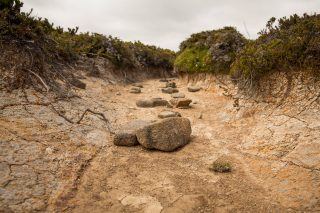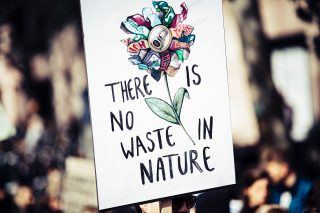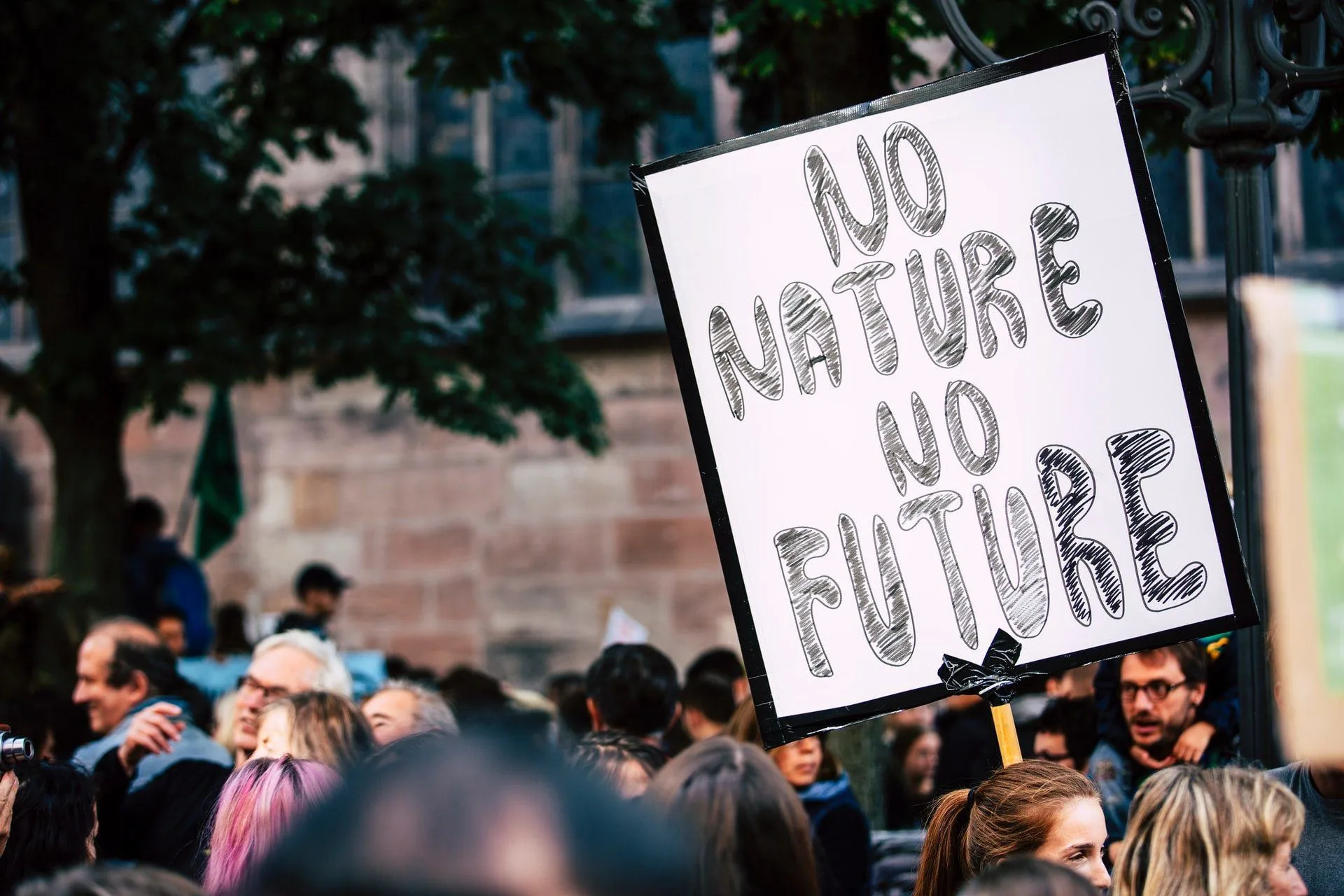While world leaders are making promises at the G20 summit that we hope they’re going to keep, a recent report from The Lancet has come out to remind us how our actions that have contributed to climate change aren’t harming the health of the planet, but also our own health.
The Lancet Countdown report has signaled a “code red” warning that climate change is getting worse and this will exacerbate the health conditions of communities across the globe.
Climate Change: Code Red for Health
“Climate change is here, and we’re already seeing it damaging human health across the world,” Anthony Costello, executive director of the Lancet Countdown.
We’re seeing the effects of climate change in real-time and unfortunately, these natural disasters do have an impact on human health.
Heatwaves
A study published in Nature Climate Change earlier this year found that 20 to 76% of heat-related deaths in warm seasons could be linked to climate change. The report from the Lancet noted that the scorching-high temperatures in 2020 did lead to people dying prematurely.

Photo by Pixabay from Pexels
What’s more, scientists have come out to say that the heatwaves, and potentially the deaths, would have been virtually impossible without human-caused climate change.
Wildfires
The Lancet reminded us about the record-breaking wildfire incidences that have occurred in the past year. Sadly, as per the report, fine particulate matter from wildfire smoke may be up to 10 times more harmful to human health than particulate matter from other sources.
In fact, exposure to wildfire smoke has been linked to an increased risk of heart and lung disease, worsened mental health, and a greater risk of preterm birth as well as an increase in premature death.
If that’s not enough, research has also found that wildfire smoke can also play a role in you contracting COVID-19. According to an August study co-authored by researchers at Harvard’s T.H. Chan School of Public Health and published in Science Advances, fine particulate matter from wildfire smoke was associated with a significant increase in infections and deaths.
The researchers said that the high level of particulate matter was “a key factor in exacerbating the severity of the COVID-19 pandemic in affected counties across three states.”
Droughts

Photo by Matt Palmer on Unsplash
The report found that drought has increased substantially across the Western and Central U.S. since 2020. In other parts of the world, the situation is even direr.
According to the October edition of World Bank Groups’s Africa’s Pulse report, the frequency of droughts in sub-Saharan Africa nearly tripled by 2010-19.
The report also found that droughts have affected most people, particularly those living in the Horn, Sahel, and southern regions on the continent.
According to the Lancet report, drought has an indirect effect on human health as it increases the exposure to heat, as well as the risk of respiratory and infectious diseases. Additionally, drought can also worsen water quality, and worsen mental health issues, especially in rural areas where farming is a way of life.
Air Quality
Climate change and the burning of fossil fuels lead to air pollution, which in turn increases the risk for respiratory diseases such as asthma and chronic obstructive pulmonary disease. In fact, a report from the Air Quality Life Index (AQLI), which converts air pollution levels into their impact on life expectancy, found that dirty air is a much bigger threat and killer than smoking and HIV/Aids.
The Lancet report points out that while the use of fossil fuels can affect air quality, reductions in greenhouse gas emissions could trigger health benefits from improved air quality.
Flooding
According to the report, climate change contributes to increased flood risk due to increased heavy rainfall events and rising sea levels. Unfortunately, it appears that the risk of flooding will only continue to rise as the planet warms.

Photo by Jonathan Ford on Unsplash
A recent study published in Communications Earth & Environment, climate change will significantly alter future patterns of flooding.
The researchers noted that although future increases in moderate storms won’t necessarily lead to more runoff in many regions. However, extreme storms will generate more devastating and frequent flooding.
Not only can these floods destroy homes and crops, driving food insecurity, but they can contaminate drinking water, spread infection, and create environments suitable for the transmission of water-borne diseases.
Who is most affected?
“By 2030, it is estimated that up to 118 million extremely poor people will be exposed to drought, floods, and extreme heat in Africa if adequate response measures are not put in place,” said Josefa Leonel Correia Sacko, Commissioner for rural economy and agriculture at the African Union Commission.
The authors of the Lancet Countdown report added that low-income individuals, people of color, and the elderly, are also at risk.
Where to from here?

Photo by Markus Spiske on Unsplash
Yes, the United Nations Climate Change Conference (COP26) is currently underway in Glasgow. While world leaders are demonstrating just how well they plan to tackle the climate crisis, the authors of the Lancet study believe that not enough is being done.
Speaking to VeryWell, research director for the Lancet Countdown and the study’s lead author Marina Romanello, Ph.D. shared that of the 84 countries reviewed in the report, 65 were still subsidizing fossil fuels.
“The concerning find is that the response of the world is not enough or commensurate to the risks that we’re facing,” says Romanello.
“We’re seeing that decarbonization, since 2014 to 2018, only at 0.6% per year, which means that at this pace, would take another 150 years to fully decarbonize the world’s electricity grid. And as a consequence, increased deaths attributable to air pollution because their countries are not decarbonizing their energy systems.”
Bottom line
Unlike COVID-19, there is no vaccine for climate change or its effects. It’s important for us to act now and hold world leaders and institutions responsible. That said, the task doesn’t just lie with them, as we can also do our part.

Photo by Markus Spiske on Unsplash
This can be done by adopting more sustainable habits. These include adopting a plant-based diet and opting for carpooling, public transportation as well as biking. In fact, becoming healthier could be the best thing that you can do for yourself and the planet.
“Transitioning away from anything that harms your health and is beneficial for the environment will always be a win-win situation.” – Marina Romanello
References
Aguilera, R., Corringham, T., Gershunov, A. et al. (2021). Wildfire smoke impacts respiratory health more than fine particles from other sources: observational evidence from Southern California. Nat Commun 12, 1493. https://doi.org/10.1038/s41467-021-21708-0
Brunner, M.I., Swain, D.L., Wood, R.R. et al. (2021). An extremeness threshold determines the regional response of floods to changes in rainfall extremes. Commun Earth Environ 2, 173. https://doi.org/10.1038/s43247-021-00248-x
Vicedo-Cabrera, A.M., Scovronick, N., Sera, F. et al. (2021). The burden of heat-related mortality attributable to recent human-induced climate change. Nat. Clim. Chang. 11, 492–500. https://doi.org/10.1038/s41558-021-01058-x
Zhou, X., Josey, K., Kamareddine, L., Caine, M. C., Liu, T., Mickley, L. J., Cooper, M., & Dominici, F. (2021). Excess of COVID-19 cases and deaths due to fine particulate matter exposure during the 2020 wildfires in the United States. Science advances, 7(33), eabi8789. https://doi.org/10.1126/sciadv.abi8789





![women [longevity live]](https://longevitylive.com/wp-content/uploads/2020/01/photo-of-women-walking-down-the-street-1116984-100x100.jpg)










